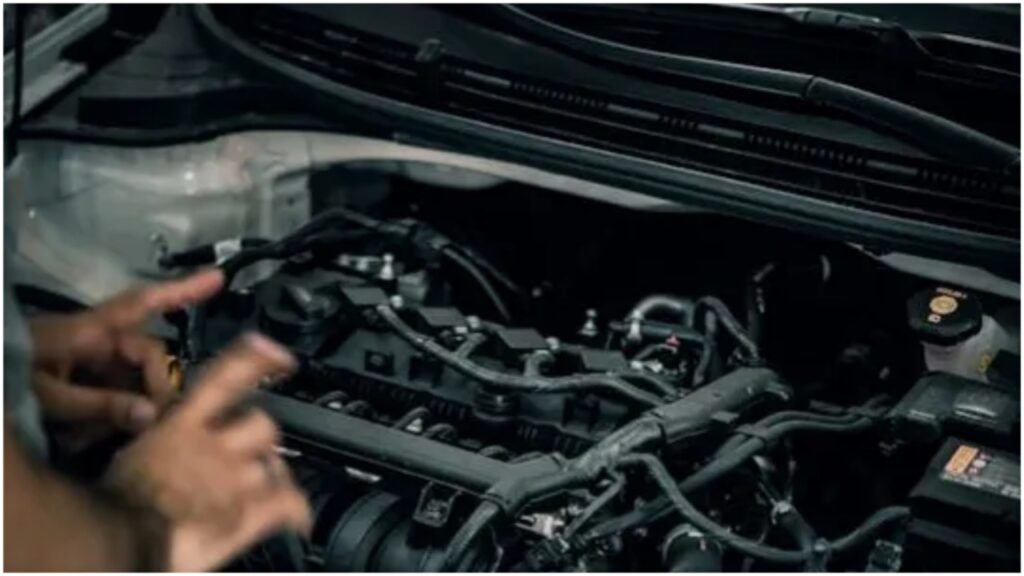That clunking noise when you turn your steering wheel at low speeds can be unsettling. It often points to wear in your car’s steering and suspension components. Common culprits include worn tie rod ends, ball joints, or sway bar links.
Less frequently, it could be strut mounts or even CV joints. While often not an emergency, addressing this sound promptly is wise to prevent further issues.
Faulty CV Joints
One of the most common causes of clunking noise when turning is a problem with the CV (constant velocity) joints. These are key components in your car’s axle that allow the wheels to move smoothly while turning.
Over time, the CV joints can wear out or become damaged, especially if the protective boots are torn or cracked. This results in a clicking or clunking sound as you turn the wheel, particularly at low speeds when the joints are under more strain. If this is the issue, you’ll likely need to replace the CV joint.
Worn Steering Components
Another possible cause is worn-out steering components. The steering system comprises various parts, including the steering rack, tie rods, and ball joints. If any parts become worn or loose, they can cause a clunking sound when you turn the wheel.
A common culprit here is the tie rod ends, which connect the steering rack to the wheels. When these parts wear down, they can cause the wheels to move erratically, leading to clunking noises.
Suspension Issues
Your car’s suspension system is designed to keep the vehicle stable while driving. If the suspension is faulty, such as worn-out shocks or struts, it can cause a clunking noise when turning.
The suspension components help absorb the impact of bumps in the road, but when they become damaged or degraded, they can no longer do their job correctly. If this is the cause of the noise, you may need to replace the shocks or struts to restore proper handling.
Loose or Broken Sway Bar Links
The sway bar helps keep your car stable when turning, especially around corners. If the sway bar links become loose or break, they can cause a clunking noise when you turn the wheel.
This issue is usually noticeable when driving at low speeds or navigating tight turns.
Problematic Ball Joints
Ball joints are another crucial component in your car’s suspension and steering system. They connect the steering knuckles to the control arms and allow smooth movement while turning. Over time, these joints can wear out, causing a clunking noise when you steer.
Ball joints are also responsible for maintaining the alignment of your wheels, so if they fail, it can lead to poor handling and uneven tire wear. Replacing the ball joints will resolve this issue and restore the smoothness of your steering.
Damaged Power Steering System

If the power steering system malfunctions, it can also cause a clunking or popping sound when turning the wheel. Power steering is designed to make turning more straightforward, but a problem with the pump, rack, or fluid can lead to noises while steering.
Low fluid levels, air in the system, or a failing power steering pump can all contribute to these sounds. Having the power steering system checked and repaired can help fix this issue.
Worn Bushings
Bushings are small rubber or polyurethane components that cushion and support various parts of your car, including the suspension, steering, and drivetrain. Over time, these bushings can wear out and become brittle, leading to a clunking noise when turning.
When the bushings fail, metal parts can come into direct contact with each other, creating unwanted noise. Replacing the worn bushings is often a quick and affordable fix to eliminate the clunking sound.
Loose Wheel Lug Nuts
Not only can internal components cause clunking noises when turning, but loose wheel lug nuts can also be a culprit.
If the lug nuts holding your wheels in place aren’t tightened properly, the wheels can move slightly during turns, causing a clunking sound.This issue is relatively simple to fix by ensuring the lug nuts are correctly tightened.
Excessive Tire Wear
Worn-out tires can sometimes cause unusual sounds, including clunking while turning.
If the tread on your tires is uneven or excessively worn, it can affect how your wheels grip the road and lead to noise during turns.
Check your tires for signs of wear; if necessary, replace them to resolve the issue.
Conclusion
When turning your steering wheel at low speed, a clunking noise is usually a sign of an underlying problem with your car’s suspension, steering, or drivetrain.
The most common causes are worn or damaged CV joints, steering components, suspension parts, sway bar links, and ball joints.
It’s essential to have your vehicle inspected by a mechanic to diagnose the issue properly. Early detection and repair can help prevent further damage to your car and keep it running smoothly.

